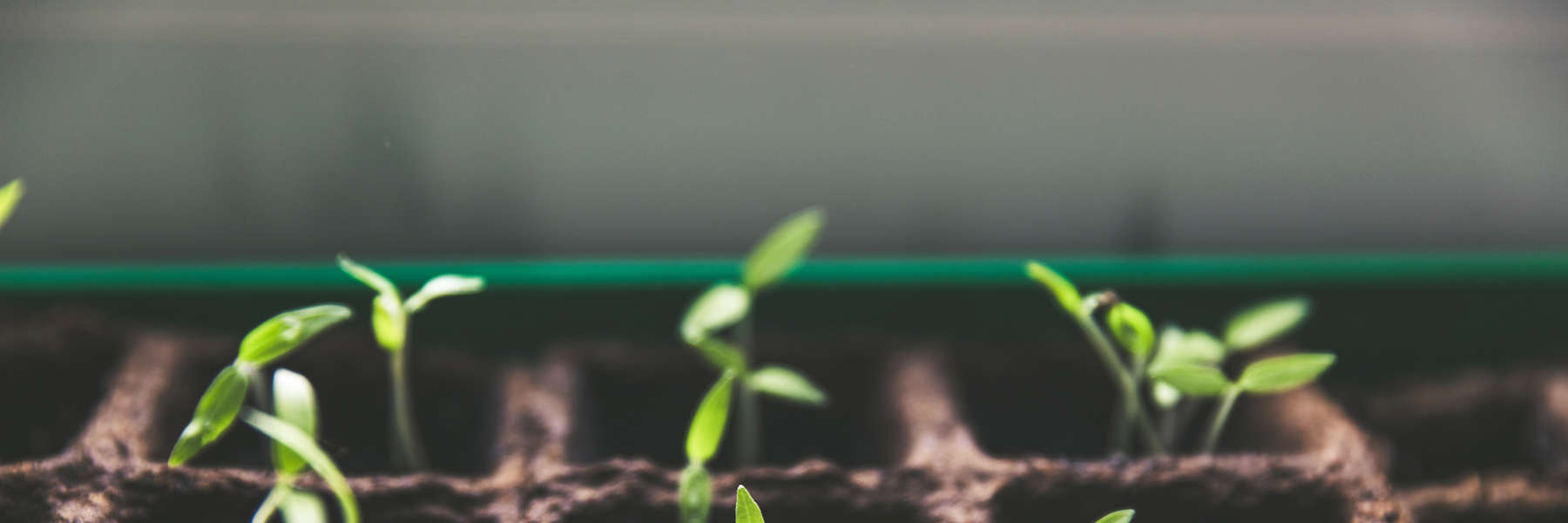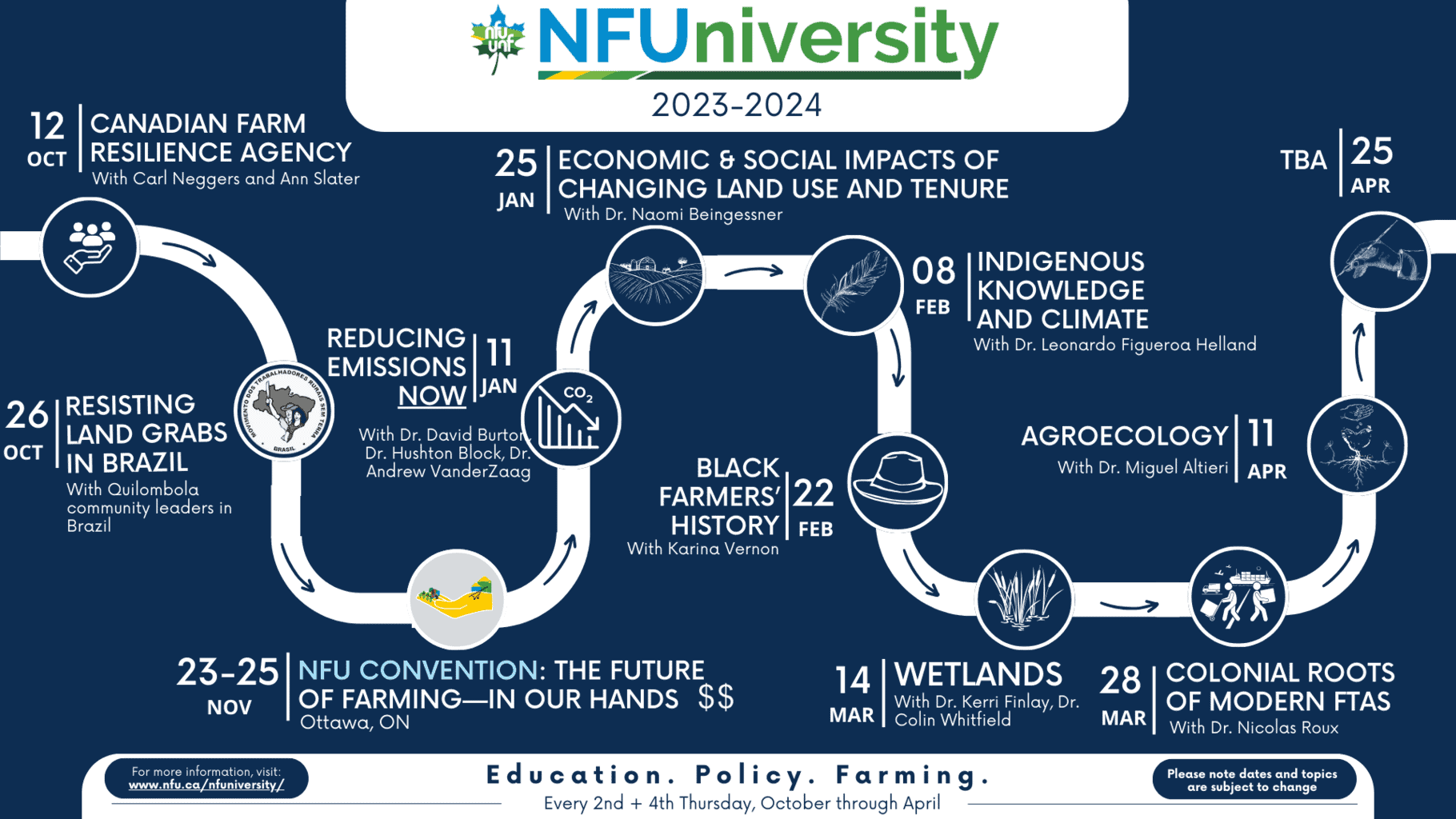Agroecology
NFUniversity is inviting you to register for our class on Agroecology presented on Thursday, March 11, 2021. Agroecology is a way of farming, and a way of thinking about farming. It takes seriously

NFUniversity is inviting you to register for our class on Agroecology presented on Thursday, March 11, 2021. Agroecology is a way of farming, and a way of thinking about farming. It takes seriously
Thursday, March 25th, 12:00 – 1:30 PM Pacific NFUniversity is inviting you to register for our class on Seed Activism presented on Thursday, March 25, 2021, at noon Pacific /
Thursday, April 8th, 12:00 – 1:30 PM Pacific NFUniversity is inviting you to register for our class on Fossil-Fuel-Free-Farming presented on Thursday, April 8, 2021, at noon Pacific / 1PM Mountain /
What are the implications of scaling up biofuel production? Can we do so while also feeding a growing population? What are the climate and environmental and human rights implications? Is
For more information and to sign-up: click here.
Join Darrin Qualman NFU Director of Climate Crisis Policy and Action for a deep dive into the sources of agricultural emissions. For the full description and registration, click here.
What is the relationship between economic progress in the land now called Canada and the exploitation of Indigenous peoples? And what gifts embedded within Indigenous world views speak to miyo- pimâtisiwin ᒥᔪ ᐱᒫᑎᓯᐃᐧᐣ (the good life) and specifically to good economic relations? Upholding Indigenous Economic Relationships draws on the knowledge systems of the nehiyawak ᓀᐦᐃᔭᐊᐧᐠ (Plains Cree people) to explain settler colonialism through the lens of economic exploitation.
Momentum is building for on-farm emissions reductions. Farmers face an array of options. But what is practical and cost-effective now? What four or five things should farmers consider in the

Companies and individuals are increasingly seeking to buy land in Scotland to benefit from its ‘offsetting’ potential, while farmers and landowners are being asked to increase the positive environmental impact

What do Indigenous perspectives tell us about interlocking Earth crises like climate change, biodiversity loss, and food injustice, and ways to respond to these? How can work on climate, food and sustainability center Indigenous knowledges in ways that foreground Indigenous peoples' decolonial struggles for land defense and land rematriation, biocultural diversity restoration, and the restitution of land-based sovereignty--including food sovereignty?